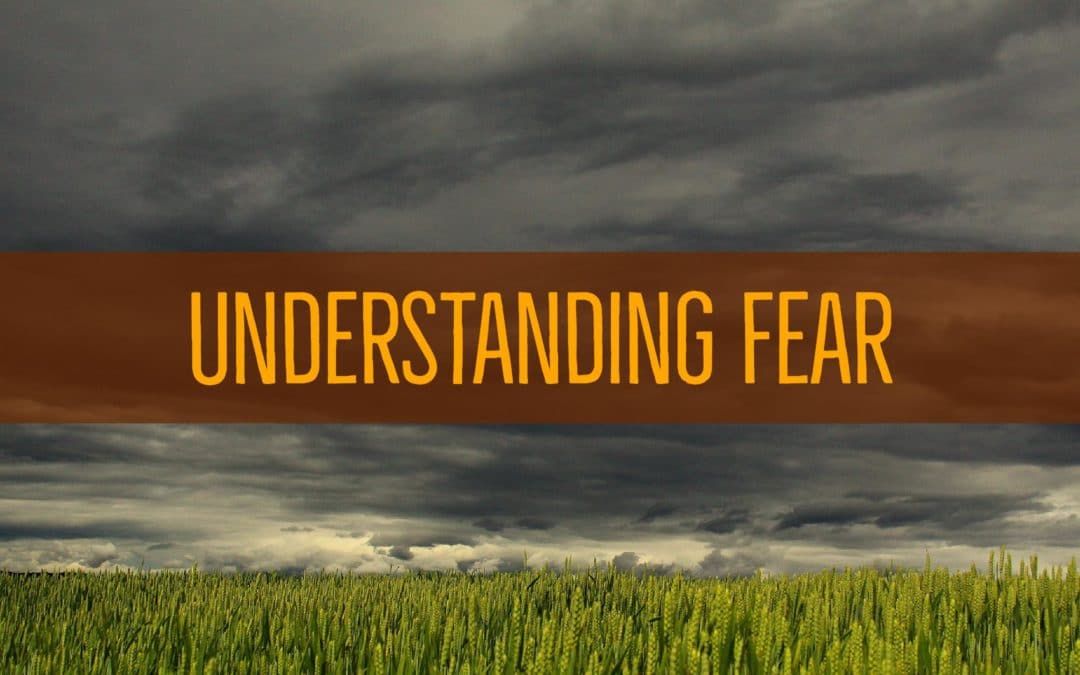Understanding Fear:
Most of us have experienced fear in our lives at some point in time. I am yet to know a person who has never been fearful in his entire lifetime. So, what is fear? Fear is actually one of the emotions that the individual consciousness experiences. It is one of the ten basic emotions present in any living creature. Life is what it is, due to these ten basic emotions. If there were no emotions, there would have been no way to experience what we call life.
That’s a relief! As long as one has a body( human, animal, or celestial), everyone is endowed with these emotions to experience life.
Peeking inside the brain to understand how does it work :
The problem starts when we become human beings😂, we not only experience our emotions, we are aware of them too. What I mean is that we are aware of what we experience. And fear is not a very good feeling to be aware of. So, let’s see why we feel scared and what really happens when we experience this emotion? Fear is an emotion that makes us aware of any threat( perceived or real) so that we can take action accordingly. This is essential to our existence. The brain’s amygdala gets activated when we perceive any threat which activates areas involved in preparation for motor functions involved in fight or flight. It also triggers the release of stress hormones and the sympathetic nervous system.
How our body reacts when stress hormones are released:
- Hyper alert brain 2) Pupils dilate 3) faster breathing 4) faster heartbeat. 5) Increased blood pressure. 6)increased blood flow 7) slower digestion
Each one of you would experience these same bodily sensations each time you feel fearful.
The problem of the untamed mind:
Until now, it’s all good. All these 7 triggers will help us to get out of real danger but the problem arises when the fear arises due to a perceived threat and not the real threat. There is no real situation to handle. So, with a hyper alert brain and stress, combined, our scattered minds run all over grabbing onto all the old fearful experiences. It’s like typing the word stress and fear in the google library, all the pages related to stress and fear open up when we do not know what to look for! 🙈🙈🙈 . You can compare this with a program that hangs and gets stuck on a loop due to a bug. This is a bug in the system and there is no real situation to handle, so the brain keeps on searching the probabilities, and cooks up stories to make it real, it’s doing that in order for you to take action.
My recent fear:
I am a single child and my parents are 70+. I live in Canada and they live in India. The reason I moved from the United States to Canada a year back is so that I can apply for permanent residency for my parents after a few years and bring them along with me. But lately, my mom has been quite unwell mentally and she is not in a position to go for a medical checkup or a visa interview. Although there are still more than 2 years to apply for PR, the doctors say there is a very dim chance for her to recover and be completely well. So, the fear popped up in my head recently about what will happen if I am not able to bring my parents with me? What would happen in case that the fear comes true? In those moments of fear, I imagined my dad passing away leaving mom alone, mom’s rejection of a visa, and my family’s reluctant shift back to India.
What worked for me?
Embracing fear is the first step to overcome any fear. What does it mean to embrace fear? Embracing fear means accepting the perceived threat with folded hands. It’s like surrendering in front of him. It means acknowledging that the situation can come up in the future. Now, this embrace does require a level of detachment and sincere practice and efforts towards it. If you are very attached to the person or situation, it would be very challenging for you to embrace and accept that this is a possibility. In my case, I took a hard look at the fear, and with folded hands, I spoke to my Lord, ” You are the pain and you are the pleasure, how can I command you that you come in one form and not in another? If this is how you decide to meet me, let it be, make me ready so that I can welcome you with open arms when you come in the form of pain.”
Calming your mind is the next step. If you remember from the previous statements, increased heartbeat, breath, and blood flow are one of the few symptoms that trigger due to fear in our body. So, the next step helps us to reverse these bodily sensations, that in turn, will send a signal to the brain that there is no real threat to our life. 2-3 minutes of gentle breathing would help you calm the mind, and bring the breath, heartbeat, and blood flow to a normal pace. This will now help you think and focus clearly.
Facing the fear: Most of us at some point in time, learn to calm ourselves down in times of fear. This is required by all of us to lead a normal life. each one of us might have different mechanisms and ways to do that but we know how to pull ourselves up somehow to keep going. Rarely, we take time and show courage to face our fears. We hide them under the pillow or brush them up saying “All is well! All is well!” or distract ourselves by shifting our attention to something positive. All these are wonderful methods and ways that do work when it comes to small worries and little anxieties of daily lives. However, there are some fears in our life that are repetitive. They are deeply ingrained in our psyche and we need to face them. The fear triggers a fight or flight response and this step, where you face your fear prepares you to fight and face the fear when the real situation comes up in your life. Consider this step as a mini test for the real exam.
Coming back to my story, I sat in silence and said to myself, let’s imagine what you feared has already happened? Now what? What you are planning to do? What should you do if the situation comes up? Do your actions impact others? Are they aware of your response if the situation arrives? Do they have a better plan?
I made up my mind that if this situation actually comes up, I will come back to India and take care of my mom. Now, this was an easy decision and I guess most of us would do that. The hard part was to open a conversation with my family about the situation.
Communicating your response with others:
First, I spoke to my dad and told him that I would always take care of mom and if something happens to him, she will stay with me. It does not matter if she gets a visa or not, I will stay wherever she will be. He was happy and relieved to hear that.
Second, I spoke to my husband and told him that I am a little concerned about mom’s health and I have made up my mind to go back to India in case there are hurdles related to mom’s stay with us here. This would mean that he would have to learn to cook and take care of our son, should he decide to stay back with him. My husband was a little sad to think of the situation as we have not stayed apart even for a month, but he agreed to me going back. He also started learning how to cook simple things. This also set the wheels in motion for him and he has started preparing so that he can find a job in a few years that would allow him to work remotely in case, he needs to travel to India often.
My son is just under 8 years and already has separation anxiety. So, we decided not to discuss things with him at this stage. He is aware that I was going to to intensify my sadhana at some point in time and this makes him scared that him mom will disappear in thin air someday.🙈
Letting it Go:
Once you have made a plan and communicated with all those who are involved and care for you, you are done with your preparation part, your brain is ready to deal with it in a much better way in case the situation arrives. Take a deep breath and Let it go!!!
Let me know how you face your fears?
My mantra to overcome fear in nutshell:
Embrace. Breathe. Plan. Communicate. Let Go









Comments & Discussion
34 COMMENTS
Please login to read members' comments and participate in the discussion.